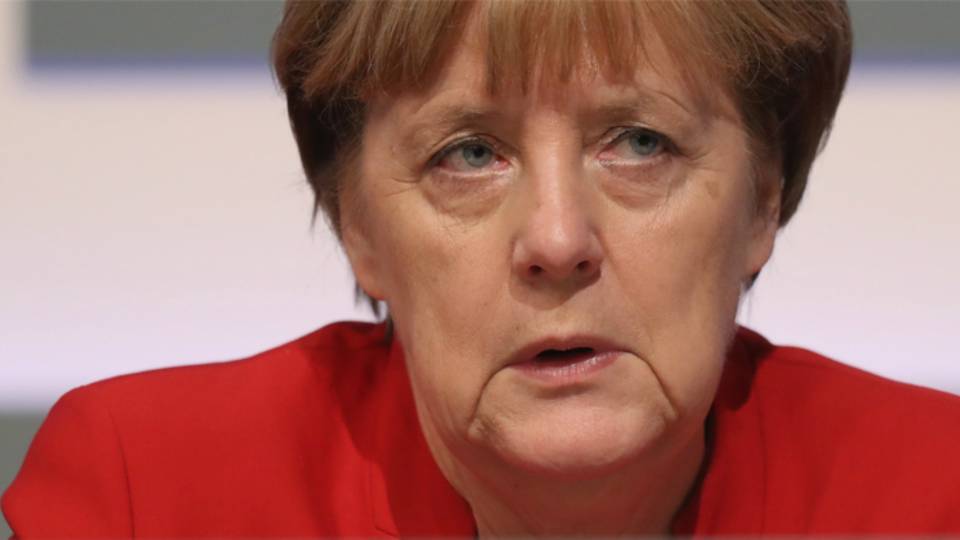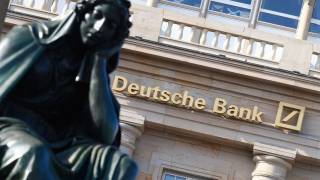Desperate Merkel Calls for Burka Ban
German Chancellor Angela Merkel, fearful of a growing populist movement across Europe, has called for a burka ban in a desperate bid to win enough support to stay in power.
Speaking at a conference for fellow lawmakers from the Christian Democratic Union, Merkel said wearing the “full veil is not appropriate” in Germany and should be outlawed “wherever that is legally possible.”
Merkel’s position represents a fundamental shift in her view on the issue, as she previously resisted supporting an outright ban on the burka.
Facing pressure from the Alternative for Germany (AfD) party following local election loses earlier this year, and having witnessed the recent fall of the globalist Prime Minister of Italy, Merkel appears ready to co-opt some elements of the populist opposition in a bid to stay in power for another term.
Italian Prime Minister Matteo Renzi, a pro-EU globalist, resigned from office following the resounding defeat of his proposed constitutional referendum aimed at transferring power from the Senate to the Chamber of Deputies and granting the majority party bonus seats in an effort to make passing legislation easier.
Critics argued the plan was nothing more than an attempt to sideline minority parties and grant increased power to the Prime Minister at the expense of the Senate and Italian regional bodies.
Several populist movements, including Beppe Grillo’s left-leaning Five-Star Movement, the right-leaning Northern League, and the right-leaning Forza Italia movement, will seek to capitalize on the growing anti-establishment sentiment sweeping Europe. Both parties are highly skeptical of the European Union.
Matteo Salvini, the leader of the right-leaning Northern League, has said that the “No” campaign’s victory is a “victory of the people against the powers of three-quarters of the world.”
Renzi and his supporters have attacked those supporting the Five-Star Movement and the Northern League, claiming both are guilty of spreading Russian-produced “fake news.” Others suggest Renzi’s resignation would trigger a banking crisis and Italy’s exit from the Eurozone.
Despite the success in Italy, a Populist candidate for President of Austria fell to an establishment-backed leftist.
Nobert Hofer of the right-wing Freedom Party (FPÖ) conceded defeat to his opponent, former Greens Party leader Alexander Van der Bellen, after preliminary vote counts demonstrated higher-than-expected support for Van der Bellen.
With roughly 99% of the vote tallied, Van der Bellen carried 53.3% compared to Hofer’s 46.7%.
In the first round of voting held earlier this year, Nobert Hofer of the right-wing Freedom Party (FPÖ) defeated former Greens Party leader Alexander Van der Bellen.
As neither candidate received more than 50%, a second round of voting was required. Van der Bellen was narrowly declared the winner in the second round after absentee ballots were counted.
That result, however, was overturned after the Constitutional Court of Austria determined absentee ballots were counted too early in 14 administrative districts.
Hofer, currently the Third President of Austria’s National Council (the lower house of Parliament), campaigned against the continued centralization of power by the European Union, the Austrian government’s willingness to continue accepting refugees from the Middle East despite a series of terror attacks across Europe, and escalating tensions with Russia.
Martin Schulz, the president of the European Parliament, said Van der Bellen’s victory marked a defeat for “anti-European, backward-looking populism.”
Vice Chancellor Sigmar Gabriel, head of the left-leaning Social Democrats in Germany, said that “a load has been taken off the mind of all of Europe,” calling the result “a clear victory for good sense against right-wing populism.”
Marine Le Pen, of the National Front, will look to capitalize on the Populist-led success in Italy during her campaign for President of France, as will Geert Wilders and the Party for Freedom (PVV) in the Netherlands and UKIP in the United Kindgom.






















